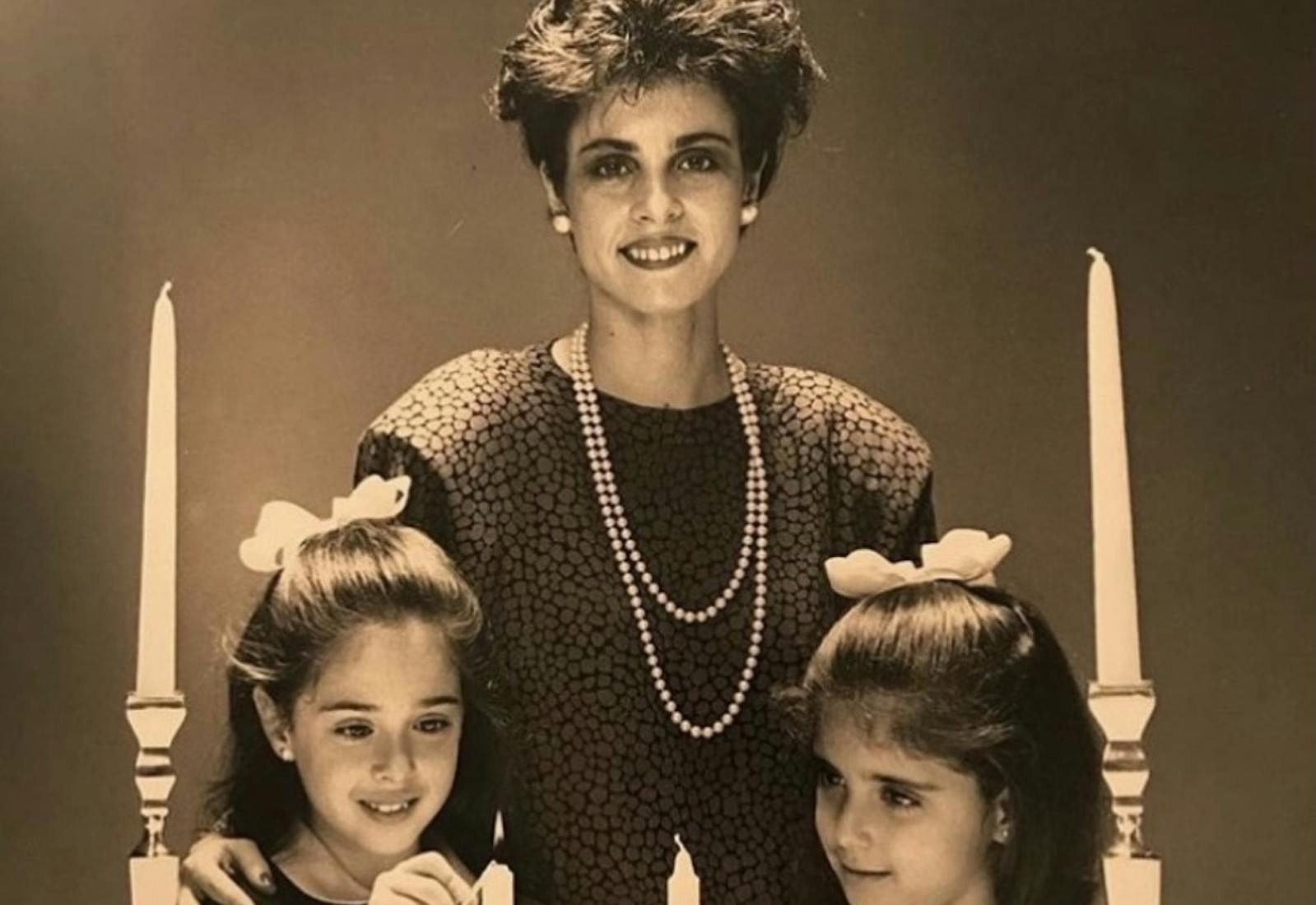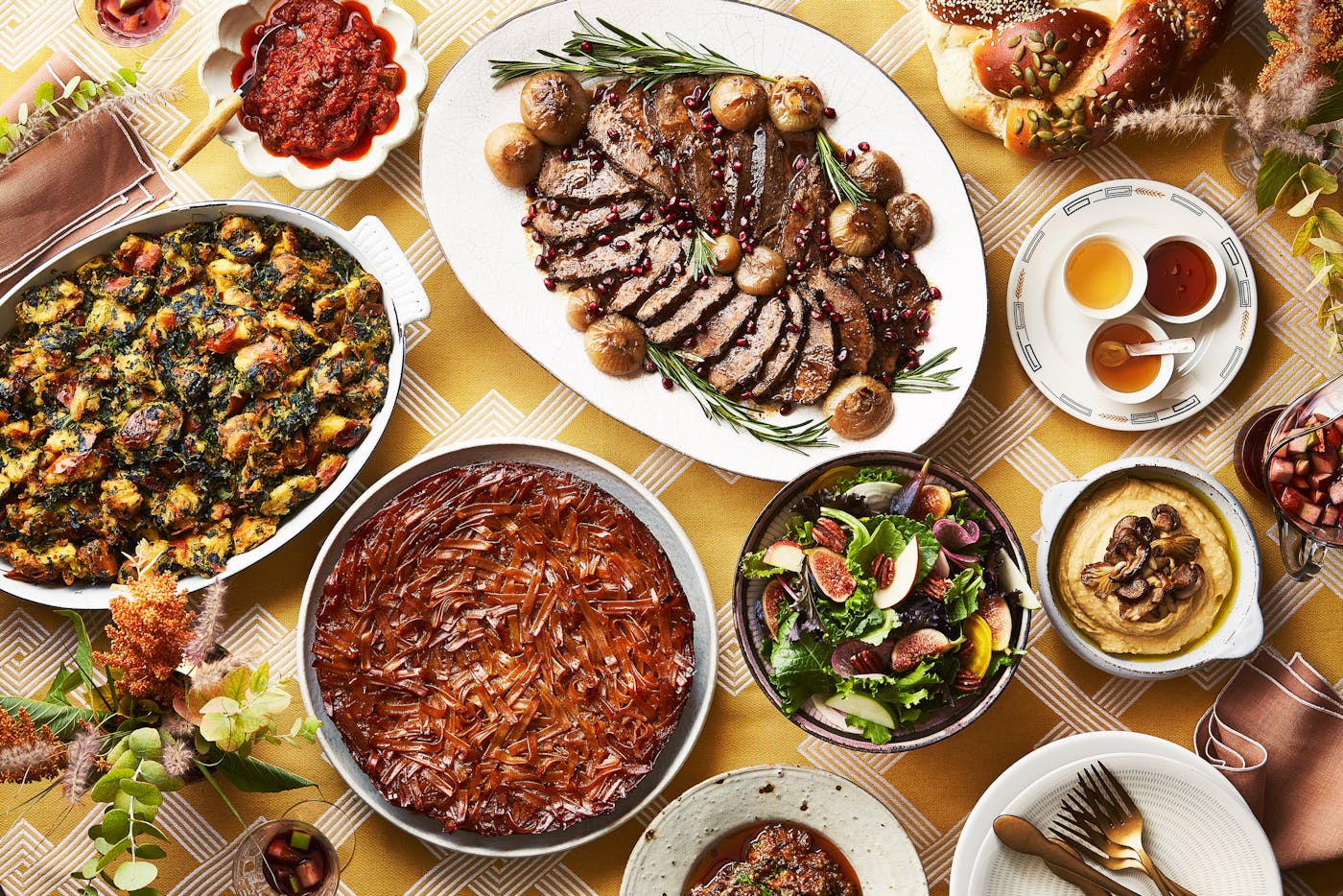Shared by Chanie Apfelbaum


They say walls of the temple in ancient Jerusalem could expand to fit more people, explains Chanie Apfelbaum, the author “Totally Kosher: Tradition with a Twist!”. “And our sukkah felt like that.”
She grew up on the same street as the Chabad Lubavitch World Headquarters in Brooklyn, the home and main synagogue for the Chabad movement. Her father, Chesed, worked as a personal assistant to the wife of Rabbi Menachem Mendel Schneerson, the religious and spiritual leader of Chabad. One year when Chanie was still little, he was gifted the walls from one of the rabbi’s sukkahs. From then on it became the sukkah her family used every year.
During Sukkot, Chanie’s home became a stop for many on their way to synagogue. People from all over the world were welcomed in and prompted by her father with “Vayse or gelleh? White or yellow (vodka or whiskey)?” Then, they were poured a small glass and invited to join together in a l’chaim or toast.
Chanie’s mother, Devorah, would pass dish after dish of traditional Ashkenazi fare through the small window that connected their kitchen to the garden where their sukkah stood. Kugel, challah, stuffed cabbage, turkey, and roasted chicken intermingled with the many guests filling their Sukkah. There was a constant flow of people coming in and making blessings together.
“I wanted to have that kind of sukkah — full of people, song, happiness, and joy,” says Chanie.
Today, she splits her time between her parent’s sukkah and her own at her Brooklyn home where she still makes some of the comfort food that she grew up with, like her bubbie’s cabbage soup and marble bundt cake. But, she also breaks from her mother’s traditional feast by playing around with themed meals like tacos, sushi, and ramen.
Chanie is a fifth generation Jewish-American and grew up with classic dishes from the 1950s like macaroni salad and chop suey on the dinner table. And her house was never a stranger to various kugels, whether made with potatoes or broccoli. But, when she married into a family with Syrian heritage and Argentinian roots, she was introduced to a new world of Jewish foods: Sephardic cuisine.
In the beginning, it was a culture shock. “At first, I hated rose water and couldn’t believe people put cinnamon in meat,” recalls Chanie. “But now I love it.”
Her Sukkot meals tell the story of her enthusiasm for various cuisines — Jewish and others. Coming from the High Holidays, which are so emotionally heavy, Chanie emphasizes the importance of joy and levity during the celebration of Sukkot. Over the years, she has dabbled in menus influenced by Yemenite, Mexican, and Japanese cuisines.
Most of her dinner menus include stuffed vegetables — a common harvest festival symbol — like an acorn squash filled with Syrian jeweled rice and a hearty soup. For Chanie, who admittedly will never order soup off of a restaurant menu, it’s a signature Sukkot food. There’s nothing better than being surrounded by the embracing walls of the sukkah and being warmed from within by a big bowl of it, she says. Some of her other favorites for the holiday are peppery Yerushalmi kugel, spinach and challah stuffing, a pomegranate roast with cipollini onions, and a salad with apples and figs.
For Chanie, Sukkot is a time to relish the bounty of the harvest, the joy of community and the excitement for the year to come. Sitting in her Sukkah, you can hear the echo of songs coming from neighbors in their sukkahs.
“It feels like you’re part of the Jewish people and we’re all part of this beautiful time and celebration,” says Chanie.
